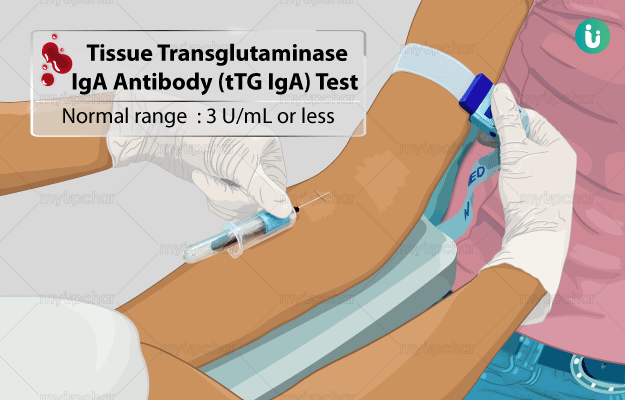What is Tissue Transglutaminase IgA Antibody test?
The tissue transglutaminase antibody test is a blood test used to diagnose coeliac disease.
Coeliac is an autoimmune disease that affects one in every 100 people worldwide. If you have coeliac disease, your immune system will produce antibodies every time you eat gluten - a protein found in wheat, rye and barley. Since coeliac is an autoimmune disease, these antibodies are against healthy tissue, which in this case is an enzyme called tissue transglutaminase. Tissue transglutaminase normally reduces inflammation in the body.
Coeliac patients tend to get inflammation in the small intestine and have hampered nutrient absorption.
Two types of antibodies are produced in the body in coeliac disease - IgA and IgG. IgA antibodies are more useful in diagnosing coeliac disease as they are produced in the small intestine where the inflammation actually occurs.
Coeliac disease is not a gluten allergy or intolerance. A combination of genetics and the environment may be a cause for the coeliac disease.






























